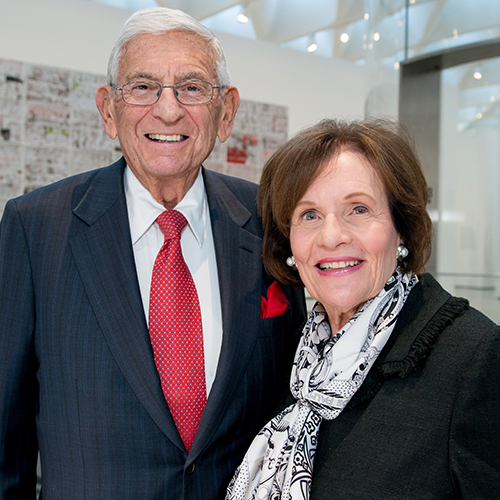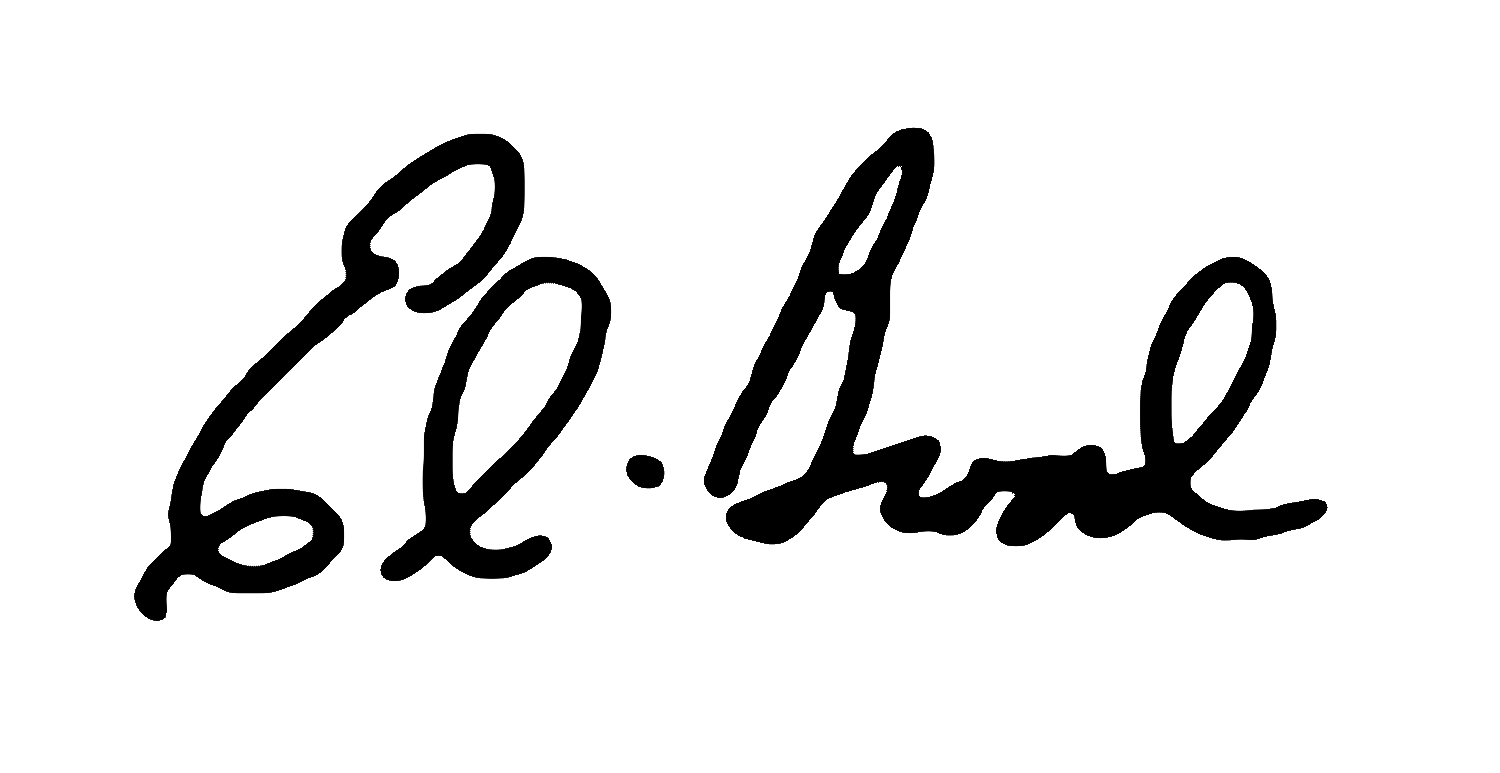
Eli and Edythe Broad
Those who have been blessed with extraordinary wealth have an opportunity, some would say a responsibility - we consider it a privilege - to give back to their communities, be they local, national or global."
Pledge letter
Our Giving Pledge
July 1, 2010
We wholeheartedly endorse the Giving Pledge and hope that others will share in the inherent and immensely rewarding benefits of philanthropy.
Those who have been blessed with extraordinary wealth have an opportunity, some would say a responsibility—we consider it a privilege—to give back to their communities, be they local, national or global. Though neither of us was raised in an affluent family, our parents taught both of us the importance of giving back and helping others less fortunate.
When the company we founded, SunAmerica, merged into AIG in 1999, our shareholders and employees made a lot of money, and so did we. After providing for our family and our two sons, we knew we wanted to use the rest to make a difference. The Giving Pledge allows us to formalize our longtime intention of giving away 75 percent of our wealth during or after our lifetimes.
About 10 years ago, we decided to focus full-time on philanthropy. We asked ourselves what was the greatest problem facing America. We both attended public schools and credit education as the foundation of our success. But we were dismayed by the state of America’s K-12 public education system, and we wanted to work to restore it to greatness. We are convinced the future of the middle class, our standard of living, our economy and our very democracy rests on the strength of our public schools. And we have a long way to go.
While we spend the most time on education reform, we invest the greatest resources in scientific and medical research, primarily in the areas of human genomics, stem cell research and inflammatory bowel disease. It is our hope that through our investments in these areas and our creation of the Broad Institute of MIT and Harvard, the scientific and medical research we are funding will ultimately improve the human condition.
The third area of our philanthropy is the arts. We have both been enriched not only by the visual and performing arts but also by the artists we have met, whose view of the world has broadened our perspectives and enlightened our conversations. Our support of the arts is driven by the desire to make art accessible to the broadest public.
We view charity and philanthropy as two very different endeavors. For many years, we practiced charity, simply writing checks to worthy causes and organizations. Since leaving the world of commerce, we have engaged in what we term “venture philanthropy.” We approach our grant-making activity with much the same vigor, energy and expectation as we did in business. We view our grants as investments, and we expect a return—in the form of improved student achievement for our education reform work, treatments or cures for disease in our scientific and medical research, and increased access to the arts.
Before we invest in something, we ask ourselves three questions that guide our decision:
1. Will this happen without us? If so, we don’t invest.
2. Will it make a difference 20 or 30 years from now?
3. Is the leadership in place to make it happen?
Philanthropy is hard work. Many people think it’s easy to give money away. But we are not giving money away. We want our wealth to make a measurable impact. And after running two Fortune 500 companies, we’re having more fun now—and working harder—than ever.
Philanthropy is intensely personal. No two people have identical views on what causes to champion and what approaches will fix social ills. There is no monopoly on philanthropy, and the needs will always far outpace resources—which is why the Giving Pledge unlocks the door to a world of new opportunities. There is no doubt that when the wealthy few open their pocketbooks, the impact will be extraordinary.


